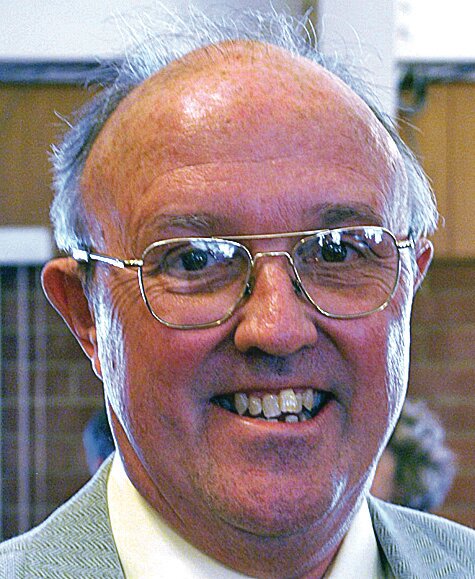Beveridge: What has the ‘32-Year Club’ done for us?
Reid K. Beveridge has covered politics in Texas, Iowa, Wisconsin, Delaware and Washington, D.C. He resides near Georgetown.
Back in 1952, when Dwight D. Eisenhower was running for president of the United States against Illinois Gov. Adlai E. Stevenson, it was called the “20-Year Club.”
That was because Democrats had held the presidency for 20 years: four terms for President Franklin D. Roosevelt (yes, four!) and one for Harry S. Truman. Ike won, of course.
Today, in Delaware, we have the “32-Year Club.” How’s that working out for us?
Neither the pundits nor the voters can ask that most pregnant of questions of this year’s candidates for governor: “Are you better off ... ?” The question bounces down to some other Democrat. You have to be (how old?) to remember when the last Republican governor served.
The recent party primaries have raised up for us two interesting candidates for governor: New Castle County Executive Matt Meyer for the Democrats and House Minority Leader Mike Ramone of Newark for the Republicans. We won’t attempt to parse either of the candidate’s platforms. Readers can look that up. Meyer hasn’t done anything terrible in New Castle County that we know of. Neither has Ramone done anything with his small band of GOP warriors in the House of Representatives. How could he? He’s in the minority, and the House’s Democratic leadership doesn’t allow him to do anything.
Rather, Delaware has become a very blue state during our time as a 32-Year Club. So, let’s get in our time machine and reel ourselves back to when we last had a Republican governor and a Republican majority in the state House. Or even further back to when a chap by the name of Pierre S. du Pont IV was governor. Those years were even more golden by the identity of our two U.S. senators: Joseph R. Biden Jr. and William V. Roth, both chairs of major Senate committees and power men for us in Washington, indeed. Very powerful.
Pete du Pont’s esteemed governorship was followed by more good years under Gov. Michael Castle. Then, the roof fell in, and the 32-Year Club began:
- Thomas R. Carper for eight years
- Ruth Ann Minner for eight years (more about her below)
- Jack Markell for eight years
- John Carney for eight years.
Lucky us.
Carper, of course, has been our senator for 24 years now and is finally retiring. He has distinguished himself in Washington by being nearly invisible. He didn’t do much as governor, either, concentrating on an education agenda that mostly didn’t work.
Ruth Ann Minner was worse. She had been Carper’s lieutenant governor and ran for governor mostly on the theory that it was her turn. She was interested in a new slogan for the state and a fence around Woodburn, the governor’s residence in Dover.
Jack Markell followed, after defeating Carney in the primary to most everyone’s surprise. And then, Carney, who had been our congressman for a while, followed him. Nothing terrible happened, except for three things.
The first to go was the Chrysler plant in Newark in 2008. Thousands of jobs were lost. There is little evidence that our governor lifted a finger to avoid this.
The next to go was General Motors. It had a huge assembly plant for Chevrolets in the Boxwood neighborhood. It closed a couple years later. Thousands of good union jobs were lost. There is little evidence that Jack Markell did much to avoid this, either.
Instead, the Markell administration gave a company named Fisker more than a million dollars to build electric cars there. No car was ever built.
Then, we have our state’s former pride and joy, the E.I. du Pont de Nemours Corp. (or DuPont). It was to be said of Delaware that we were about the three C’s: chemicals, chickens and Chancery (the Court of). Not so much about chemicals anymore.
Somehow, our leaders allowed DuPont to become controlled by hedge fund out-of-staters. It has not gone well, at least from the point of view of Delawareans. Under the leadership of Ed Breen since 2015, the crown jewel of our state’s corporate identity has been broken up and sold off under the theory of being focused (their words, not mine).
Fortunately for us, chickens and Chancery remain, though now, even Chancery is under attack.
Meanwhile, this quartet has, to one degree or another, talked about education. And accomplished not much, even with big majorities in the General Assembly, mostly throughout. Today, Delaware’s public schools are — how shall we say? — poor.
Poor schools mean a poor Delaware economy. A poor economy means a state filled with poor people.
Consider the du Pont years. Which would you rather have?
Reader reactions, pro or con, are welcomed at civiltalk@iniusa.org.







